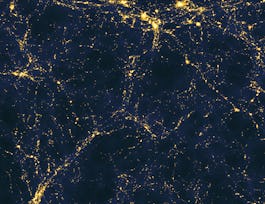It’s clear that the world needs more intellectual humility. But how do we develop this virtue? And why do so many people still end up so arrogant? Do our own biases hold us back from becoming as intellectually humble as we could be—and are there some biases that actually make us more likely to be humble? Which cognitive dispositions and personality traits give people an edge at being more intellectually humble - and are they stable from birth, learned habits, or something in between? And what can contemporary research on the emotions tell us about encouraging intellectual humility in ourselves and others?


Intellectual Humility: Science
Taught in English
Some content may not be translated
14,046 already enrolled
(178 reviews)
Details to know

Add to your LinkedIn profile
22 quizzes
See how employees at top companies are mastering in-demand skills


Earn a career certificate
Add this credential to your LinkedIn profile, resume, or CV
Share it on social media and in your performance review

There are 6 modules in this course
What's included
1 video2 readings1 discussion prompt
Dr Cristine Legare argues that humility is intimately connected to a state of openness to new ideas, and looks at how we can foster this in children. It turns out that what psychologists say makes kids better at exploring, explaining and being open, is not necessarily how they're taught at school!
What's included
5 videos5 readings5 quizzes4 discussion prompts
Professor Frank Keil discusses a number of biases which we all have, and which can make us more arrogant and dogmatic by leading us to think that we know more than we actually do. Can you find examples of those biases in the news, and perhaps even in yourself?
What's included
7 videos6 readings6 quizzes5 discussion prompts
Professor Victor Ottati (like Dr. Legare before) thinks that humility has a lot to do with being open to new ideas and to things we disagree with. He shows how our ability to be open-minded is related to our personal traits and to specific situations. How open-minded do you think you are about politics, religion, and any other ideas you disagree with?
What's included
9 videos3 readings6 quizzes4 discussion prompts
Professor Vasu Reddy suggests that in understanding humility, we should focus on emotions rather than on reason; on what humility feels like, not how we understand it. Humility, she says, is not a special, lofty virtue - it's a commonplace, everyday thing, and it's about being open to engagement with others. Could this help you bring more humility to your daily interactions?
What's included
8 videos3 readings5 quizzes4 discussion prompts
What's included
4 readings1 peer review1 discussion prompt
Instructors



Offered by
Recommended if you're interested in Philosophy

The University of Edinburgh

Coursera Project Network

The University of Edinburgh

Google Cloud
Why people choose Coursera for their career




Learner reviews
Showing 3 of 178
178 reviews
- 5 stars
73.59%
- 4 stars
23.59%
- 3 stars
2.24%
- 2 stars
0%
- 1 star
0.56%

Open new doors with Coursera Plus
Unlimited access to 7,000+ world-class courses, hands-on projects, and job-ready certificate programs - all included in your subscription
Advance your career with an online degree
Earn a degree from world-class universities - 100% online
Join over 3,400 global companies that choose Coursera for Business
Upskill your employees to excel in the digital economy
Frequently asked questions
Access to lectures and assignments depends on your type of enrollment. If you take a course in audit mode, you will be able to see most course materials for free. To access graded assignments and to earn a Certificate, you will need to purchase the Certificate experience, during or after your audit. If you don't see the audit option:
The course may not offer an audit option. You can try a Free Trial instead, or apply for Financial Aid.
The course may offer 'Full Course, No Certificate' instead. This option lets you see all course materials, submit required assessments, and get a final grade. This also means that you will not be able to purchase a Certificate experience.
When you purchase a Certificate you get access to all course materials, including graded assignments. Upon completing the course, your electronic Certificate will be added to your Accomplishments page - from there, you can print your Certificate or add it to your LinkedIn profile. If you only want to read and view the course content, you can audit the course for free.
You will be eligible for a full refund until two weeks after your payment date, or (for courses that have just launched) until two weeks after the first session of the course begins, whichever is later. You cannot receive a refund once you’ve earned a Course Certificate, even if you complete the course within the two-week refund period. See our full refund policy.


